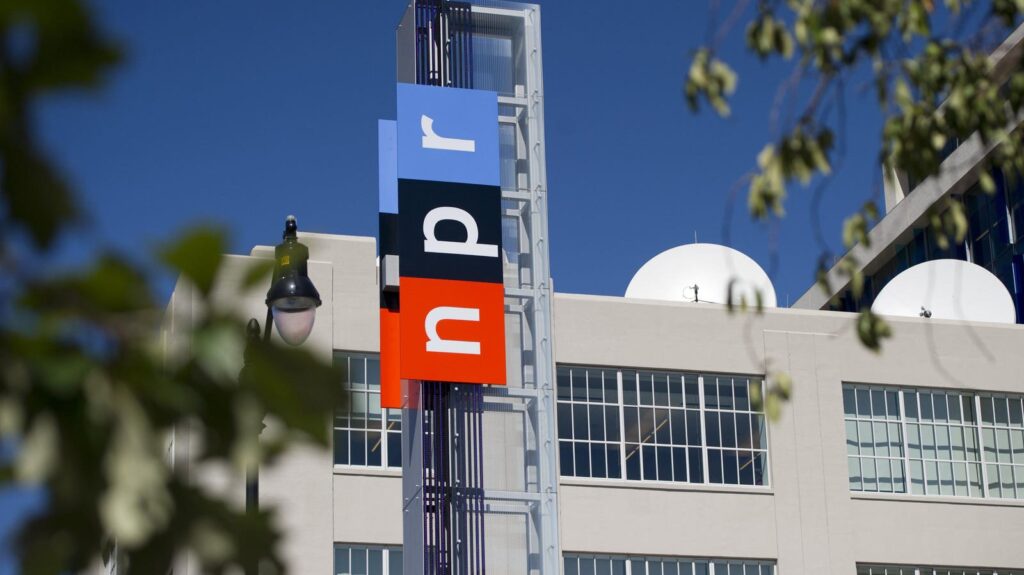Topline
President Donald Trump signed an executive order seeking to cut federal funding for NPR and PBS on Thursday, while accusing both public broadcasters of being “biased” and “woke”—a grievance the president has brought up several times in the past.
Trump has ordered to cut federal funding to NPR and PBS, accusing them of being biased in their news … More
Key Facts
The executive order directs the Corporation for Public Broadcasting (CPB) to “cease direct funding to NPR and PBS,” noting that this action aligns with the Trump administration’s policy “to ensure that Federal funding does not support biased and partisan news coverage.”
The order states that the CPB will “cancel existing direct funding to the maximum extent allowed by law” and “decline to provide future funding.”
The CPB has also been ordered to cease any “indirect funding” to NPR and PBS by ensuring that licensees of public radio and TV stations do not use federal funding for the two broadcasters.
The order claims that, unlike in 1967 when the CPB was established, the current media landscape has “abundant, diverse, and innovative news options,” which makes government funding of news media “outdated and unnecessary.”
The Trump administration’s “Rapid Response” X handle posted about the order and said it would end “taxpayer subsidization of NPR and PBS” and alleged the outlets “spread radical, woke propaganda disguised as ‘news.’”
Get Forbes Breaking News Text Alerts: We’re launching text message alerts so you’ll always know the biggest stories shaping the day’s headlines. Text “Alerts” to (201) 335-0739 or sign up here.
How Reliant Are Pbs And Npr On Federal Government Funding?
PBS and NPR have not commented on Trump’s executive order yet. However, PBS CEO Paula Kerger discussed the issue of federal funding in an interview earlier this week. Kerger said the annual funding to PBS “amounts to about $1.60 per person a year,” and this money is used to fund the operations of PBS stations across the country. Kerger also noted that, unlike most public broadcasters around the world, which are almost entirely state-funded, federal funding only accounts for “about 15%” of PBS’ budget. The rest of the funding “comes from contributed money from viewers.” Earlier this year, NPR reported it receives about 1% of its funding “directly from the federal government each year.”
How Have The Broadcasters Responded To Allegations Of Bias?
Earlier this year, the CEOs of NPR and PBS had been asked to testify at a hearing called by the Congressional DOGE committee. During the hearing in March, NPR’s CEO Katherine Maher said: “Although there is a perception that NPR only serves a liberal audience, NPR data shows us a different fact pattern…Independent polling from February 2025 found that more than sixty percent of all Americans and more than half of Republicans trust public broadcasting to deliver fact-based news. About half of Americans report that NPR is important to them personally.” Kerger, who also testified during the hearing, said: “More than three-quarters of Americans feel that PBS stations provide excellent value to their communities. For over two decades, the American public has consistently ranked public television as one of the best investments the government makes.”
What Has Trump Said About Pbs And Npr?
In a post on his Truth Social platform in March, Trump described NPR and PBS as “two horrible and completely biased platforms.” He then urged Congress to defund their operations “IMMEDIATELY,” and added “Republicans, don’t miss this opportunity to rid our Country of this giant SCAM, both being arms of the Radical Left Democrat Party.”
Further Reading
Trump’s War With The Media: Trump Continues Aggressive Attacks Against ‘60 Minutes’ (Forbes)
Will Trump Defund NPR And PBS? Here’s What We Know As President Attacks The Broadcasters (Forbes)
Read the full article here
